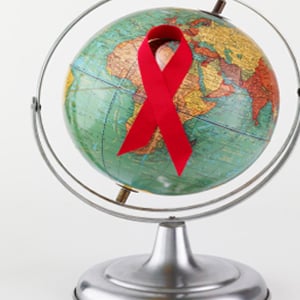
istock
An estimated 63% reduction in child HIV infection rates has been recorded in South Africa between 2009 in 2012, UNAIDS, the United Nations joint programme on HIV/Aids, said in its latest report.
This meant that 24 000 fewer children had been infected with the HI virus.
The findings are from the UNAIDS "Global Plan" towards eliminating new HIV infections among children, and keeping their mothers alive in 21 African countries, by 2015.
In total, there were 130 000 fewer new HIV infections among children across the priority countries – a drop of 38%.
"The progress in the majority of these countries is a strong signal that, with focused efforts, every child can be born free from HIV," said UNAIDS executive director, Michel Sidibe.
A sign of things to come
South Africa has made good progress in the fight against HIV, Deputy President Kgalema Motlanthe recently told delegates at the Aids Conference, in Durban.
“We are on the correct track; people living with HIV are living longer … thirty years after the discovery of the HI virus, the world stands at a critical point where we seem tantalisingly close to declaring victory,” said Motlanthe.
Almost echoing Motlanthe’s sentiments, UNAIDS said South Africa had shown tremendous progress in reducing the numbers of children and women acquiring HIV infection and in providing access to HIV treatment to both groups.
“Strong political leadership and commitment has been translated into clear results for the people affected,” the UN agency said.
More HIV-positive pregnant women were now also receiving antiretroviral medicines to prevent the virus being transmitted to their children and for their own health in 2012 than in 2009. Treatment coverage levels exceeded 75% in many of the focus countries.
Four other countries: Botswana, Ghana, Namibia and Zambia had already met their goal of providing antiretroviral medicines to 90 percent of the women who were eligible, to prevent transmission of HIV from mother to child.
No room for complacency
The report, however, also reveals that only half of all HIV-positive breastfeeding mothers receive antiretroviral medicines to prevent mother-to-child transmission of HIV.
Breastfeeding has been proven as critical to ensuring child survival.
UNAIDS has strongly emphasised the urgent need to provide antiretroviral therapy during to all HIV-positive women during the breastfeeding period.
“Progress has stalled in some countries with high numbers of new HIV infections. We need to find out why and remove the bottlenecks which are preventing scale-up [of treatment],” UNAIDS executive director, Michel Sidibe added.
In a separate report, the United Nations warned that while Aids-related deaths were decreasing in countries like South Africa, we should “not to become complacent because … much more remains to be done.”
This meant that 24 000 fewer children had been infected with the HI virus.
The findings are from the UNAIDS "Global Plan" towards eliminating new HIV infections among children, and keeping their mothers alive in 21 African countries, by 2015.
In total, there were 130 000 fewer new HIV infections among children across the priority countries – a drop of 38%.
"The progress in the majority of these countries is a strong signal that, with focused efforts, every child can be born free from HIV," said UNAIDS executive director, Michel Sidibe.
A sign of things to come
South Africa has made good progress in the fight against HIV, Deputy President Kgalema Motlanthe recently told delegates at the Aids Conference, in Durban.
“We are on the correct track; people living with HIV are living longer … thirty years after the discovery of the HI virus, the world stands at a critical point where we seem tantalisingly close to declaring victory,” said Motlanthe.
Almost echoing Motlanthe’s sentiments, UNAIDS said South Africa had shown tremendous progress in reducing the numbers of children and women acquiring HIV infection and in providing access to HIV treatment to both groups.
“Strong political leadership and commitment has been translated into clear results for the people affected,” the UN agency said.
More HIV-positive pregnant women were now also receiving antiretroviral medicines to prevent the virus being transmitted to their children and for their own health in 2012 than in 2009. Treatment coverage levels exceeded 75% in many of the focus countries.
Four other countries: Botswana, Ghana, Namibia and Zambia had already met their goal of providing antiretroviral medicines to 90 percent of the women who were eligible, to prevent transmission of HIV from mother to child.
No room for complacency
The report, however, also reveals that only half of all HIV-positive breastfeeding mothers receive antiretroviral medicines to prevent mother-to-child transmission of HIV.
Breastfeeding has been proven as critical to ensuring child survival.
UNAIDS has strongly emphasised the urgent need to provide antiretroviral therapy during to all HIV-positive women during the breastfeeding period.
“Progress has stalled in some countries with high numbers of new HIV infections. We need to find out why and remove the bottlenecks which are preventing scale-up [of treatment],” UNAIDS executive director, Michel Sidibe added.
In a separate report, the United Nations warned that while Aids-related deaths were decreasing in countries like South Africa, we should “not to become complacent because … much more remains to be done.”




 Publications
Publications
 Partners
Partners














